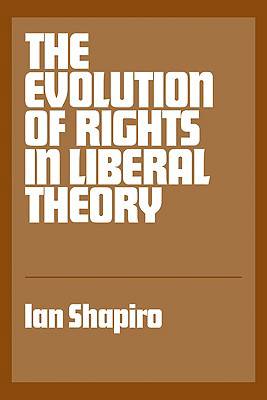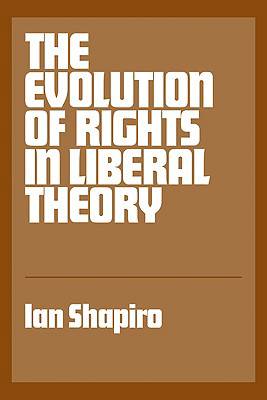
- Afhalen na 1 uur in een winkel met voorraad
- Gratis thuislevering in België vanaf € 30
- Ruim aanbod met 7 miljoen producten
- Afhalen na 1 uur in een winkel met voorraad
- Gratis thuislevering in België vanaf € 30
- Ruim aanbod met 7 miljoen producten
Zoeken
The Evolution of Rights in Liberal Theory
An Essay in Critical Theory
Henry Tam, Ian Shapiro, Shapiro Ian
Paperback | Engels
€ 50,45
+ 100 punten
Omschrijving
In this book Ian Shapiro offers a systematic comparative evaluation of the writings of contemporary liberal rights theorists and those of their seventeenth-century predecessors. He shows how contemporary arguments about rights and justice evolved out of the contractarian tradition of the seventeenth century but he argues that they are lethal mutation of that tradition. Some of the deepest difficulties of contemporary rights theories derive from the appropriation of parts of the older tradition without the unifying assumptions about knowledge and science that gave the seventeenth-century arguments their underlying coherence. Those assumptions are no longer available to us, making it impossible for us to return to the internally more consistent philosophies of the liberal past. Shapiro draws out the implications of his analysis for current disputes within liberalism between rights theorists and utilitarians and for disputes between liberals and communitarians, arguing that the communitarian critics of liberalism are in danger of incorporating its most serious weaknesses.
Specificaties
Betrokkenen
- Auteur(s):
- Uitgeverij:
Inhoud
- Aantal bladzijden:
- 340
- Taal:
- Engels
Eigenschappen
- Productcode (EAN):
- 9780521338530
- Verschijningsdatum:
- 29/08/1986
- Uitvoering:
- Paperback
- Formaat:
- Trade paperback (VS)
- Afmetingen:
- 147 mm x 219 mm
- Gewicht:
- 421 g

Alleen bij Standaard Boekhandel
+ 100 punten op je klantenkaart van Standaard Boekhandel
Beoordelingen
We publiceren alleen reviews die voldoen aan de voorwaarden voor reviews. Bekijk onze voorwaarden voor reviews.











